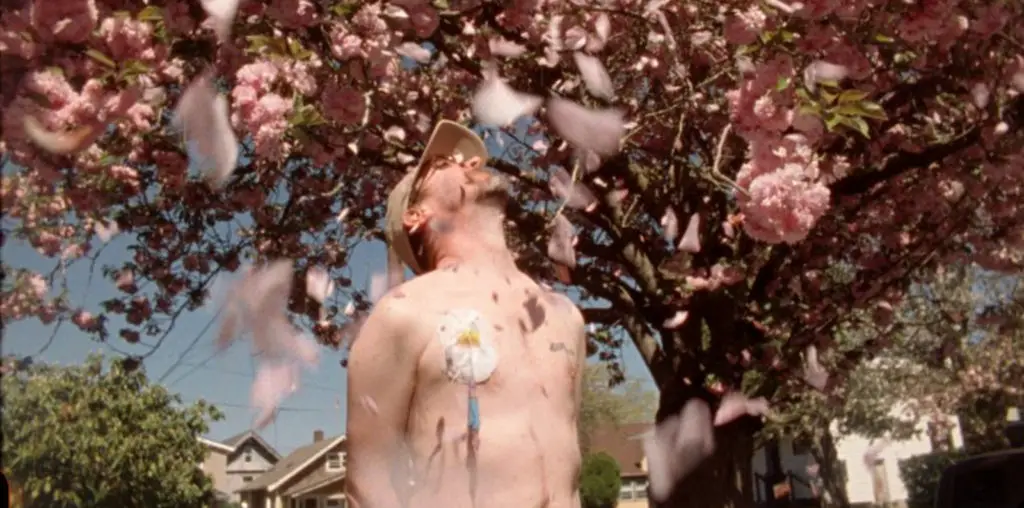
In the latest bigscreen version of a Stephen King bestseller Anthony Hopkins plays an enigmatic drifter who every now and then gets this far away look in his eyes and catches a glimpse of the future. At one point in “Hearts In Atlantis” he’s in need of quick cash and so places a longshot bet on a big boxing match. It’s the definition of a sure thing. And that’s exactly what I thought we had here – movie money in the bank.
How can you lose, I figured, with one of the world’s finest, most charismatic actors up front, a script by screenwriting god William Goldman (“Butch Cassidy And The Sundance Kid,” “Misery,” “All The President’s Men”), “Shine” director Scott Hicks in the driver’s seat and behind it all, Castle Rock, the outfit responsible for timeless King adaptations like “Stand By Me,” “Misery,” “The Shawshank Redemption” and The Green Mile? I would have bet everything I have that this would prove a movie every bit as good. And I would have ended up dead broke.
To my surprise, this is a minor film and a major disappointment. Things start off promisingly enough. All the requisite ingredients for a classic King coming of age fable appear to be in place. Hicks sets the stage with a convincing evocation of small town New England circa 1960 . All the right period tunes take their turn on the soundtrack’s jukebox. Fresh-faced and talented young actors play friends straddling childhood and adolescence during a life defining summer. Anton Yelchin is a marvelous little actor and holds his own in high-powered company. The 11 year-old son of a snippy, self-absorbed widow, he nurses a crush on the girl living literally next door and trades good natured jibes with a crew-cutted pal. Hope Davis turns in the film’s most accomplished performance as his mother, an embittered semi-beauty whose so busy feeling sorry for herself she’s only quasi cognizant of the boy growing up before her. When she rents out the upstairs room in their home and Hopkins shows up with his worldly possessions in shopping bags, she’s put off enough to distrust him at once but sufficiently indifferent to put up with him anyway.
Hopkins is all promising eye-sparkle and mystery as the lodger, a wistful codger named Ted Brautigan. In no time flat he fills the adult male vacuum in Yelchin’s universe sharing exotic quotes from long dead writers, paying the boy to read the paper and, in turn, every now and then reading his mind.
O.K., we’re in business, I thought. Deserving kid dealt a lousy hand by life downstairs. Mysterious stranger with inexplicable powers upstairs. Let the magic begin.
Only nothing happens. Sure, Sir Anthony sits in a chair and stares dreamily into space once in a while. And pretty soon he starts mumbling about “low men,” shadowy thugs who are coming for him and who, he can sense, are drawing close. And once, when the boy touches him during one those spells, Hopkins’ ESP – type power rubs off onto him temporarily. But, aside from a few relatively incidental plot points and a handful of Hollywood Kodak moments depicting generic preteen frolic, nothing else of consequence occurs. Boy and supernaturally gifted boarder bond, never-explained dark forces threaten to cut their time together short and bingo, the next thing you know, David Morse is flashing back on the whole affair as the grownup version of Yelchin’s character, a 50 year old photographer who’s returned to his hometown for the funeral of a friend. Whatthuh? Did one of the film’s reels not get shipped with the rest? Did I drift off Anthony Hopkin’s – style and miss something?
Apparently not. Baffled is the word for it. Without ESP-type powers it’s difficult to imagine what the makers of “Hearts In Atlantis” were thinking. All setup and no payoff, the picture is beautifully shot, nicely acted and, again, just packed with promise. My sense is its failure to live up to that promise stems from decisions Goldman made in adapting King’s 1999 collection for the screen. The book is made up of four novellas, and one short story, all interconnected. Goldman chose to incorporate elements from just one of the novellas and the short story. That might explain the feeling I kept having that something was missing, something more was supposed to happen, that things had been brought to a boil but key ingredients had yet to be stirred in.
Sometimes less isn’t more. Maybe if more of King’s book had made its way into the script, Hicks’ adaptation would have felt less halfhearted.

